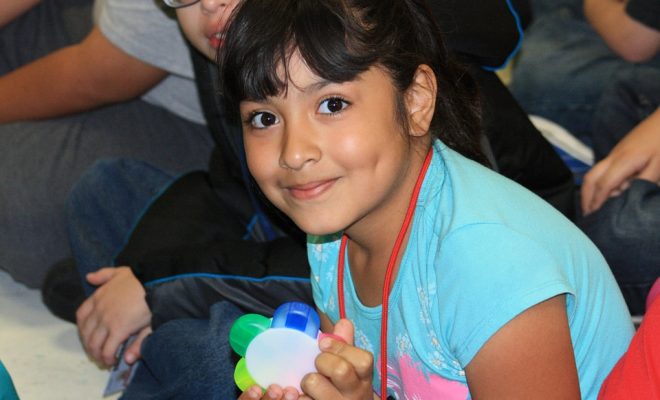University of Arizona Admissions: Everything You Want to and Need to Know

Overview of the University of Arizona
The University of Arizona is a public research institution situated in Tucson, AZ. The Institution is a member of the Association of American Universities because of its research and education strengths. The institution has a large selection of undergraduate and graduate degree programs for students to choose from. A robust student/faculty ratio backs students, and professors take a personalized approach to the teaching and learning process. Outside of the classroom, students will find plenty of opportunities to engage with the campus community via the university’s many clubs and organizations.
Enrollment
- Total Enrollment: 45,217 (35,233 undergraduates)
- Gender Breakdown: 48 percent male/52 percent female
- 85 percent full-time
Cost of Attendance Information
- Tuition and Fees: $12,467
- Books: $800
- Room and Board: $12,550
- Other Expenses: $3,500
- Total Cost: $29,317
Financial Aid Information
- Percentage of New Students Receiving Aid: 92 percent
- Percentage of New Students Receiving Types of Aid
- Grants: 87 percent
- Loans: 36 percent
- Average Amount of Aid
- Grants: $11,230
- Loans: $6,558
Academic Programs Offered
- Most Popular Majors: Business, Management, Marketing, and Related Support Services; Biological and Biomedical Sciences; Health Professions and Related Programs; Engineering; and Multi/Interdisciplinary Studies
Retention and Graduation
- First-Year Student Retention (full-time students): 81 percent
- Transfer-Out Rate: 19 percent
- 4-Year Graduation Rate: 47 percent
- 6-Year Graduation Rate: 64 percent
NCAA Athletic Programs
- Men’s Sports: Baseball, Basketball, Cross Country, Football, Golf, Swimming and Diving, Tennis, Track and Field
- Women’s Sports: Basketball, Cross Country, Golf, Gymnastics, Softball, Swimming and Diving, Tennis, Track and Field, Volleyball, Beach Volleyball
Overview of University of Arizona Admissions
The University of Arizona, which accepts three-quarters of applicants, boasts a somewhat selective admissions process. Students whose SAT/ACT scores and GPA are within the institution’s requirements have a good chance of being admitted. This institution has a robust admissions process that involves a multitude of academic measures. Applicants must complete an online application. A persuasive essay and glowing recommendation letters can bolster your application, along with being involved with student organizations and attempting a challenging course load. Students with unique talents and accomplishments can still receive strong consideration even if their GPAs are outside of the admissions offices mean range. Interested students should check out the university’s website, which has helpful tips and contact information for the admissions offices. Students should make a campus visit to determine if the institution is a good fit for them.
Admissions Data
During the 2018-19 admissions phase, the University of Arizona had an acceptance rate of 84%. For every 100 students who submitted applications, 84 students gained admission, making UA’s admissions process somewhat competitive.
SAT Requirements and Scores
The University of Arizona has a testing policy that is test-optional. Applicants to the institution can send SAT scores to the school, but they are not required for admission. Applicants who want to be considered for scholarships (merit) must submit SAT scores. During the 2018-19 admissions phase, 53% of admitted students provided SAT scores.
This admissions data reveals that of those students who submitted scores during the 2018-19 admissions phase, most of the University of Arizona’s admitted students score within the top 35% nationally on the SAT. For the reading and writing section, 50% of students admitted to the University of Arizona scored between 540 and 650, while 25% scored under 540, and 25% scored over 650. 50% of students scored between 530 and 660 on the math section, while 25% scored under 530, and 25% scored over 660. The SAT is not required, but the data reveals that an overall SAT score of 1310 or higher is competitive for the University of Arizona.
ACT Requirements and Scores
The University of Arizona has a testing policy that is test-optional. Applicants to the University of Arizona may submit ACT scores to the school, but they are not required for admission to most programs. Students who apply to the Honors College and the colleges of Engineering, Fine Arts, Nursing, Architecture, Planning, and Landscape Architecture must submit ACT scores. Also, those applicants who want to be considered for merit scholarships must submit ACT scores. During the 2018-19 admissions phase, 54% of admitted students sent ACT scores.
This admissions data reveals that of those who sent scores during the 2018-19 admissions phase, most of the University of Arizona’s admitted students score within the top 42% nationally on the ACT. 50% of students admitted to UA received an overall ACT score between 21 and 28, while 25% scored over 28, and 25% scored under 21.
GPA
In 2018, the mean 50% of the University of Arizona’s incoming class had high school GPAs between 3.75 and 3.99. 25% had a GPA of over 3.99, and 25% had a GPA of under 3.75. This information suggests that admitted students to the University of Arizona have A grades primarily.
Safety Net Schools: Easy to Gain Admission
If past admission data predicts that you would be a competitive candidate for University of Arizona, then it should be easy for you to gain admissions to the schools below. If University of Arizona is currently out of your reach, then you are sure to be a competitive candidate for the schools below.
San Jose State University, California State University Long Beach, Florida Gulf Coast University, University of Texas at San Antonio, Washington State University, Texas State University, Indiana University-Purdue University Indianapolis
Same Tier: Just As Hard to Gain Admission
If you’re a competitive candidate for University of Arizona, then you should have an equal chance of gaining admissions at these schools.
University of Houston, San Diego State University, University of California, Riverside, University of Oregon, Florida International University, Colorado State University, Quinnipiac University
Reach Institutions: Gaining Admissions Will Be More of a Challenge
These schools are more challenging to gain admission into than University of Arizona. If you improve your GPA and SAT/ACT scores, then you’ll be a competitive candidate for these schools.
University of Connecticut, Rochester Institute of Technology, University of Massachusetts Amherst, Syracuse University, University of Cincinnati, Penn State University Park, United States Military Academy
Applying to University of Arizona
Application Deadline: May 1
Undergraduate Admissions Website: http://admissions.arizona.edu/freshmen
Undergraduate Application Link(s): https://slate.admissions.arizona.edu/apply/
Graduate Admissions Website: https://grad.arizona.edu/admissions
Graduate Application Link(s): https://apply.grad.arizona.edu/users/login





